|
Introduction
Cancer is one of the leading causes of death in the United States, and Black Americans are more likely to die from cancer than their White counterparts. It was only recently that the pandemic opened up the eyes of the nation to the myriad of systemic health inequities in our nation's healthcare system. Black families have carried a significant burden due to these health disparities. Although work is being done earnestly to study and implement solutions, we don't know how long these efforts will take. So on this Juneteenth holiday weekend and during the 2nd Annual National Black Family Cancer Awareness Week, let us look at ways to empower Black families to survive and thrive with these tips to prevent and battle cancer. My family had to bear this burden nine years ago when just after my 38th birthday, I was diagnosed with stage 3 Inflammatory Breast Cancer. It's a rare and aggressive form of breast cancer that does not present as a lump, cannot be detected until stage 3, and has a 5-year survival rate of 40%. Thankfully, I had doctors who understood the seriousness of the situation and even discussed with me that health disparities exist for Black women diagnosed with this form of breast cancer. I knew from the beginning that I had a serious battle on my hands. Thankfully, I'm still here, but it was not without having to climb a steep learning curve and with some bumps and bruises along the way. Many lessons were learned during my own cancer experience, continued advocacy, and consulting work in the cancer space. I'd like to share 10 Ways Black Families Can Prevent and Prepare for a Battle Against Cancer. 1. Reduce Your Risk of Cancer There are so many ways to get a head start on your health and implement ways to reduce your risk of being diagnosed with cancer. Check out some tips to reduce your risk of cancer below; Know Your Family History: Knowing your family's health history is essential. It's a question asked at almost every medical appointment because it provides clues for medical providers to investigate your health challenges. Having this information helps with early detection and treatment. Suppose a close relative is diagnosed with cancer. In that case, your doctor may consider ordering specific cancer screening tests for you much earlier than the current cancer screening guidelines. You can learn your family history in one of two ways. One way is through family discussions about your health history. You can use holidays like Juneteenth to initiate such a conversation. Suppose that proves to be a bit complicated. In that case, another option is to meet with a genetic counselor to discuss pursuing genetic testing. This may lead to a need to get genetic counseling, but Black women are less likely to be referred for genetic testing. Having genetic counselors from diverse backgrounds is helping to tackle health disparities. Unfortunately, there is a shortage of Black genetic counselors. Still, thankfully new programs have been initiated to increase the number of Black Genetic Counselors and increase access to genetic testing. Eat Healthy Foods It's no secret that a healthy diet can reduce your risk for cancer. Still, due to structural racism, many Black families live in communities with food deserts. This study on food deserts in the District of Columbia highlights challenges and recommendations to overcome this health disparity. Should you have access to food sources, WebMD highlights superfoods, like broccoli, that aid in the cancer fight. Check out these delivery services that provide fresh produce. Get Regular Checkups and Screenings: If you visit your doctor regularly, you can be tested for many different cancers. Early detection through cancer screenings can save lives. The number of cancer screenings for people of color is lower than for our White counterparts. The American Cancer Society has published these general cancer screening guidelines for those with average cancer risk. With many cancers disproportionately impacting Black people, some guidelines have been adjusted for when cancer screenings should occur for Black patients. Suppose there is a history of cancer in your family. In that case, you should discuss this history with your family doctor or learn whether or not adjustments in the screening timeline should be made for you. One study showed the rate of cancer screenings nearly doubled for patients just due to the simple act of sending a text message and/or call from the provider. Exercise Discuss the importance of exercise and how it can help reduce your risk of cancer. Yes, too many of us carry some extra weight, which can lead to serious health problems like cancer. According to the Centers for Disease Control and Prevention (CDC), obesity is a leading cause of preventable death in Black families. However, there are things you can do to reduce your risk of cancer, including exercising regularly. Exercise has many benefits for your overall health, including lowering your cancer risk. The American Cancer Society says that exercise reduces the risk of 13 types of cancer. Exercise helps you maintain a healthy weight, which is important because obesity increases your risk of cancer. Exercise also helps improve your immune system function and reduces inflammation in the body, which is essential for preventing cancer. Additionally, exercise helps improve blood circulation and oxygenation throughout the body, which can help stop or slow the growth of tumors. Reduce Stress It is no secret that stress plays a significant role in our overall health. Racism and other forms of discrimination can add to the stress burden for Black families. The impact of such stress can be particularly harmful, leading to an increased risk for cancer. Fortunately, therapies available can help reduce stress and its harmful effects. Spending time with family and friends, engaging in physical activity, and talking to a therapist effectively reduce stress. Therapists need to be aware of these disparities and help their patients address any additional sources of stress. Here is a list of therapy sources that can help manage stress due to racial trauma. These therapies can help improve our physical and emotional well-being, which in turn can help reduce our risk of cancer. So if you're feeling stressed out, don't hesitate to seek help. The benefits will be worth it! 2. Listen to Your Body If something is hurting and doesn't feel right, go to the doctor or a local clinic to investigate. I have heard too many stories about people noticing something different with their body that was uncomfortable or causing them some pain. They decided to ignore it, and it was too late to do something by the time they got to the doctor or the emergency room. Remember that your chances of being able to treat cancer significantly increase when caught early. For some, the fear of incurring medical debt prevents you from visiting a medical facility. Consider the cost to your family if cancer is detected so late that you receive a terminal diagnosis, lessening your chances of survival. Some federally qualified health centers offer medical care with customers paying on a sliding scale (or pay what you can). Some centers have partnerships with large cancer centers where patients can receive care. 3. Understand Your Diagnosis When first diagnosed with cancer, everything probably feels like it's spinning. You may go through a series of diagnostic tests and finally obtain an initial diagnosis and recommended course of treatment. When it comes to cancer, one of the most important decisions a person will make is what treatment to choose. This decision is not only complex but can also be life-changing. The American Society of Clinical Oncology (ASCO) provides an excellent summary of the cancer treatment decision process to help people make informed choices. The first step in making a treatment decision is considering all available options. This includes both standard and experimental treatments. Understanding each option's potential benefits and risks is essential before deciding on a course of action. Once you've considered all of your options, it's important to get a diagnosis from a doctor who specializes in cancer care. This diagnosis will help you determine which treatments are most appropriate for you. The American Society of Clinical Oncology (ASCO) provides an excellent summary of the cancer treatment decision process and factors to consider. 4. Take a Companion to Cancer Appointments Cancer patients and their loved ones often feel overwhelmed and lost when it comes to gaining a comfortable understanding of the disease and treatment. The healthcare team is there to help and wants you to have all the information you need to make informed decisions about your care. Having a companion present during these appointments can help with taking notes so you can stay focused on your discussion with the provider. They can also help you remember what was said and provide a valuable resource for future reference. It can also help you generate questions to pose to the provider and ensure you don't forget to ask anything important. Having a companion there may also help you feel more confident and not fear asking for clarification when something is said that you don't understand. 5. Get a 2nd Opinion at a Top Cancer Center Yes, local and regional hospitals are convenient, and some can be top-tier. Still, the benefits of seeking a second opinion from a top cancer center that ONLY focuses on cancer are enormous. It can be scary and confusing if you've just been diagnosed with cancer. You may feel like you want to do anything to make sure you get the best possible care. One option is to seek a second opinion from a top cancer center. A second opinion can help ensure you receive the best diagnosis and treatment plan. It can also provide peace of mind if you feel overwhelmed or uncertain about your diagnosis. It's important to note that not all cancer centers are created equal. Some are better equipped to treat specific types of cancer than others. So, it's essential to do your research before seeking a second opinion. Let your primary care doctor know if you decide to go with a second opinion. Perhaps you are concerned about travel expenses to seek a 2nd opinion. A few top cancer centers like Cleveland Clinic and Dana Farber offer virtual consultations for a second opinion. 6. Don't Suffer in Silence When it comes to your health challenges, are you more likely to keep them to yourself or share them with others? So many people, myself included, have received excellent recommendations because someone knew we were fighting cancer. Some of those recommendations can come from most unlikely places. For me, it came from my kid's school dean, who connected me to a local survivor of the same rare form of breast cancer. That survivor connected me with a wealth of resources, ultimately leading me to the premier cancer doctor world for inflammatory breast cancer. When you are diagnosed with cancer, there are a lot of things going through your mind. You may feel scared, alone, or confused. One thing that you may not think about is how to tell your friends and family. It can be hard to know what to say and how to say it. However, sharing your diagnosis with the people in your life is essential. Keeping your diagnosis a secret may prevent you from getting the support you need. It can also lead to missed opportunities for accessing valuable resources. Sharing your diagnosis can also help others understand what you are going through. They may be able to offer support or just listen when you need it. It can also help them understand why you are acting differently than usual. There is no right or wrong way to tell people about your cancer diagnosis. 7. Seek Support Cancer can be a very frightening diagnosis; for many people, learning about and dealing with the disease is too much to handle alone. If you haven't been impacted by cancer, then you probably wouldn't know about the existence of patient navigators. The first patient navigation program for cancer patients was created in 1990 by Dr. Harold Freeman, a Black doctor in Harlem, to address cancer disparities. Today, patient navigators help provide "assistance with transportation, interpretation, applying for insurance, filling out medical forms, scheduling and coordinating appointments, providing emotional and psychosocial support, education about treatment and follow-up, and community-based resources." Thousands of support organizations provide information, resources, and hope to cancer patients and their families, each with its own focus. Some provide general information about all types of cancer. In contrast, others specialize in a specific type of cancer or patient population. Organizations also focus on emotional support, providing a listening ear and a shoulder to cry on for those struggling. Ask your loved ones for recommendations of organizations they know that provide local support. You can also search www.FindCancerHelp.com to find organizations that provide products, support, or resources for cancer patients, survivors, and caregivers. 8. Counter Bias in the Medical Setting Structural racism and bias have a significant impact on the health of Black Americans. Studies have shown evidence of implicit bias in the medical community and how it negatively impacts communication between patients and providers and directly affects patient-treatment decisions. Structural racism in the form of historic redlining has been directly linked to breast cancer mortality. Racism can manifest as a doctor not listening to a patient's concerns or downplaying their symptoms. It can also show up in unequal treatment, with black patients receiving less aggressive care than their white counterparts. One way to combat this bias is for patients to be aware of their rights and advocate for themselves. If you feel your doctor is not taking your concerns seriously or treating you differently than other patients, speak up. It's unfortunate, but as Black Americans, we must be prepared to counter this bias, so it doesn't negatively impact our health. 9. Know the Conflict and Grievance Resolution Process Conflict and grievance resolution is vital in any workplace but especially critical in a medical setting. When disputes and conflicts arise between patients, employees, or volunteers, it can impact the quality of care and services received in a medical setting. It can also create an uncomfortable and hostile patient-provider environment. The first step in resolving a conflict or grievance is understanding the provider's conflict and grievance resolution process. This process should be clearly outlined on the provider's website. If you are experiencing a conflict or grievance, you should try to resolve it with the person involved. You can escalate the issue to a supervisor or manager if that doesn't work. If necessary, you can file a formal complaint with the provider or a governing body, such as the insurance carrier or local licensing authority. The conflict and grievance resolution process can be intimidating, but it is essential to remember that you have rights. The U.S. Department of Health and Human Services (HHS) has outlined a complaint and appeals process that can be used if "you have been discriminated against, your rights have been violated, or the wrong decision was made." 10. Accept Help When going through cancer treatment, it's essential to be willing to accept help from others. This can be difficult for some people, as they may feel a sense of pride or stubbornness that prevents them from asking for assistance. It's crucial to remember that cancer is a difficult battle, and you need all the help you can get. Many will offer to help; here are some ways they can help you. You can ask for rides to your appointments, have someone cook meals for you, or have someone do your laundry. If you're unsure what type of help you need, don't hesitate to ask other cancer survivors who have already been there. It's also important to remember that accepting help doesn't mean you're weak or helpless. Conclusion In conclusion, many Black families bear the burden of cancer disparities, and our nation has a long way to go to fix these systemic issues. System change can take an enormous amount of time, and our families deserve the best now. I hope that these 10 tips to prevent and battle cancer help increase your family's awareness of the many ways they can be empowered before and during a cancer journey. Please share this article with your loved ones. If you want to learn more about my cancer journey and more tips that can help you, please check out my book called, I've Been Diagnosed, Now What? Courageously Fighting Cancer in the Face of Fear, Uncertainty, and Doubt. Thank you for reading this blog and feel free to contact me at Katrece@FindCancerHelp.com. Affiliate Disclosure Statement: Nolen Management Group LLC is a participant in the Amazon Services LLC Associates Program, an affiliate advertising program designed to provide a way for websites to earn advertising revenues by advertising and linking to Amazon.com
Comments
As a Black Oklahoma native, the commemoration and recognition of the Tulsa Race Massacre Centennial have brought back so many memories. Several articles and recent media coverage have highlighted the events in 1921 and the impact on present-day Tulsa. Not only has this tragedy remained absent from our history books, but also the thriving Black communities that populated the Oklahoma landscape.
Are there Black People in Oklahoma? I remember it like it was yesterday. In 2015, I attended the Black Engineer of the Year Awards Conference in Baltimore, MD, with my fellow classmates in the Minority Engineering Program (MEP) from the University of Oklahoma. As a college sophomore, it was my first time attending this conference and the furthest East I had ever traveled. I joined a fellow classmate at the career fair, and we ended up visiting a few graduate school booths and met my future husband. He was filling in for a representative from his school, an HBCU, and quite flirtatious. He asked me where we were from, and with a country accent, I told him that we were from the University of Oklahoma. He was shocked by my accent and responded that he didn't know that there were Black people in Oklahoma. With pride, I shared that there were Black people in Oklahoma, and in fact, it had the most towns founded by Black people in America. To this day, I still meet people who are shocked to learn that I'm a native Oklahoman. Thinking back to the content taught in my Oklahoma History class, you wouldn't know many Black people existed in Oklahoma and had established thriving communities. We learned a ton about the Oklahoma Land Run, the Five Civilized Tribes, and outlaws. If there was anything discussed in Oklahoma history about Black people, it was only a brief mention. Learning About Black Wall Street I recall somehow finding out that Oklahoma had the most towns founded by Black people. Still, I didn't learn about the existence of Black Wall Street in Tulsa until I was in my late teens or an early adult. I was at an event, and there was a booth with an older Black gentleman selling books about Black Wall Street. I recall asking a more senior family member about it, and he confirmed that it did indeed exist. Another thriving Black center in Oklahoma was in Muskogee, OK, where my family has origins. My parents share fond memories of their upbringing in Muskogee. Like Tulsa, it had a very sizeable and well-established Black community. Established in the Indian Territory, before Oklahoma became a state, there was a great sense of pride in the Black community, including several Black businesses, schools, doctors, and a Black hospital. Many studies have shown that "Black patients treated by Black doctors fare better." Racial Trauma Drives Stress and Illness As a young adult survivor of stage 3 inflammatory breast cancer (IBC), I discovered how disparities impact the Black community. That "Your body teaches itself to stay in that fight or flight mode," said Dr. Jennifer Hays-Grudo, "and you see the rates of cancer, heart attacks, strokes" go up. That fight or flight mode is very much in play when constantly faced with microaggression and racism, which takes a toll on our mental health. Having doctors who understand these underlying conditions can help address these underlying conditions that lead to the disparities. Like Tulsa, many communities of color have a health gap that is driven by stark inequities. The details of the inequities in Tulsa can almost be an exact duplicate of other Black communities in America. This weekend makes me wonder how different our lives would be if events like the massacre had not occurred or families obtaining reparations for what they had lost. The impact has crossed many generations and communities across Oklahoma, driving the wealth gap and health disparities that we continue to see to this very day. 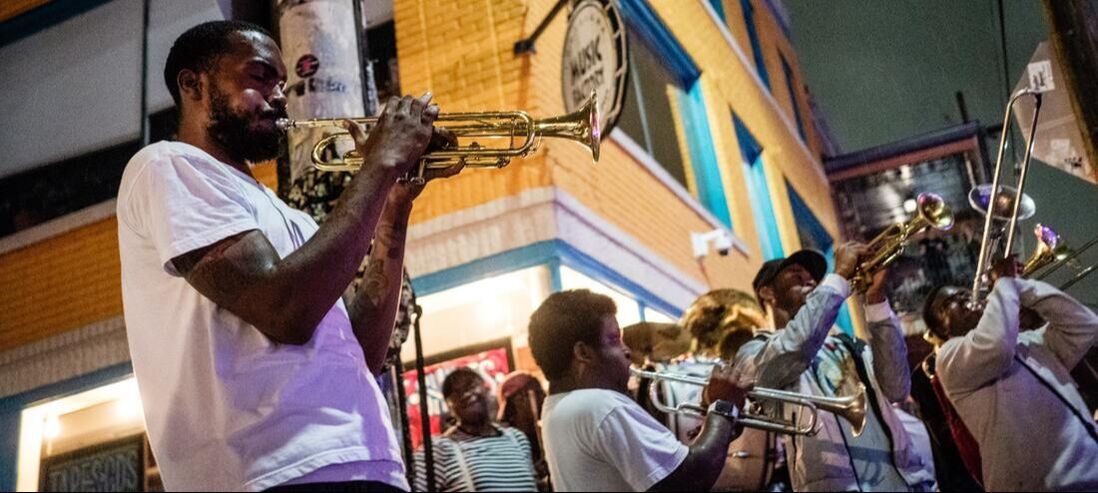 Photo by Morgan Petroski on Unsplash The pandemic opened the eyes to many Americans about underlying health disparities that have resulted in a significant number of minorities dying from complications due to COVID-19. Why were so many Americans unaware of these disparities? April is National Minority Health Month, and the National Institute of Minority Health and Health Disparities (NIMHD) shares how the purpose of this month is to do the following;
This year's theme is Vaccine Ready to increase vaccine acceptance within the minority community. The hashtags that are being used with this campaign are #VaccineReady and #NMHM2021. A quick check on social media and this national campaign is not garnering a lot of attention and reach similar to Breast Cancer Awareness month in October. Here's the reach across social media for these two hashtags as of 4/25/21;
Sadly enough, it wasn't until after my cancer fight that I focused attention on the cancer disparities. My own diagnosis was in 2013, and 11 years after the establishment of National Minority Health Month, I had no awareness of this awareness month and disparities. I wonder if prior knowledge of this subject would have altered how I approached my health before my cancer diagnosis. There has to be a push to increase the promotion of National Minority Health Month. The pandemic has already provided immediate justification for the increased amount of focus on this topic. Now, funding to support this awareness must follow. Photo by Seven Shooter on Unsplash ** This post includes affiliate links** Introduction One of the most famous cancer patients in modern history was a Black woman named Henrietta Lacks. She is considered the Mother of Modern Medicine because while being treated for cervical cancer at John's Hopkins Hospital in Baltimore, her cells were unknowingly retrieved during a biopsy. This wife and mother died in 1951 at the young age of 31. However, it turns out that her cells, called the HeLa Cells, are still alive today and are the basis for many medical miracles that we benefit from. A book about her life called The Immortal Life of Henrietta Lacks consistently ranks high in a search for Top Cancer Books on Amazon. As the Mother of Modern Medicine, her HeLa cells have been used to solve some of the greatest medical challenges and generate significant medical industry profits. Based on her life, the book is a top cancer book on Amazon and has sold over 2.5 million copies. These are two incredible feats. Unfortunately, the book was not based on her own written words and her family has not received any financial benefit from her HeLa Cells. In a Washington Post article, the oldest son of Henrietta Lacks, Lawrence, said, "The book fails to capture his mother's grace." And that "More and more, she seems not like a wife and mother of five, but "just a cell." Think how compelling it would have been to hear Mrs. Lack's first-hand accounts of her cancer experience in her own printed words. Need Stories of Black Cancer Survival Just after my 38th birthday, I was diagnosed with Stage 3 Inflammatory Breast Cancer. As a young Black woman diagnosed with a rare and aggressive form of breast cancer, I was desperate to find stories about Black women surviving cancer, especially breast cancer. I knew there were so many disparities that Black women faced in our healthcare system and desired an ounce of hope by reading cancer survival stories. In 2019, nearly 34,000 Black women were diagnosed with breast cancer in the United States. More of us are diagnosed at a younger age with more aggressive or late-stage cancer. Where are the stories of survival? If you want to read books from Black women authors who have gone through such a diagnosis, those stories are few and far between. This month we are celebrating Women's History Month. As part of that history, we have to recognize the journey that has been taken by Black women who have conquered breast cancer. Black Books Matter is a term coined by Mahogany books. Representation in books by Black breast cancer survivors gives those of us fighting cancer "a voice to their fears, hopes, wants, and needs." Black women and families need to feel empowered by the stories of others who have gone through this terrible disease. The stories in such books serve as an inspiration to so many of us. Searching for Black Women Breast Cancer Stories After my breast cancer diagnosis in 2013, I was curious to learn about other black women who had successfully battled breast cancer. Still, I wasn't successful in finding any such books back then. I searched Google and Amazon and came up pretty empty. Instead, I mainly found books by white women who had fought breast cancer. I recently began searching to find books written by Black women concerning their breast cancer journey and found the following.
Final Thoughts While there is a movement to elevate Black lives, Black books, and Black-Owned book stores, I hope this movement will make room for Black lives impacted by cancer. Do you have any books to add to this list of Black authors surviving breast cancer? *Some of the links in this post are affiliate links. This means if you click on the link and purchase the item, I will receive an affiliate commission at no extra cost to you. All opinions remain my own. As an Amazon Associate, I earn from qualifying purchases. .In every professional sport, the team owner and manager meet before the draft to identify their weaknesses to identify gaps that need to be filled with the upcoming sports draft. When I was diagnosed with cancer, I was amazed at the support team that I had in place. This network of family members and friends who support us along the way fulfilled various roles. Not too long ago, I came across guidance for building your Career Development Network. It describes key roles that can bring strength to your network; Motivators, Cheerleaders, Straight Shooters, Connectors, Role Models and Brainstormers. Looking back at my team, I can picture in my mind individuals who fulfilled each one of those roles. My husband served as a key Motivator. He knew what I was capable of and pushed me to not dwell on the fear that I had, but to get energized to get beyond that moment in time. In addition, I did my best to fill my thoughts with inspiring stories of other cancer survivors, to include a book by Lynne Eib, called *50 Days of Hope: Daily Inspiration for Your Journey Through Cancer. I swear by this book and how it lifted my spirits after reading just a few short stories.
I found a great Connector in a complete stranger, who I was introduced to by an administrator at my children’s school. She had also been diagnosed with the same rare cancer and definitely help to connect me with other like individuals and key resources that I would have otherwise been oblivious to me. Role Models for me came in the form of other women who had been diagnosed with the same rare and aggressive form of cancer. One such role model led a non-profit that she created to increase awareness in quickly detecting this from of cancer for both cancer patients and medical practitioners. It is this willingness to share her experiences with others that I seek to emulate. I found several Cheerleaders through friends and church members, who were confident that good news would be forthcoming in my cancer journey. One close friend who encouraging letters to me throughout treatment, local food delivery and gift cards regularly dropped off at our home, a group of nuns in Texas that prayed for me daily and church members prayed over me and my family each week after service. Both of my parents were Straight Shooters. They love me, but don’t mince words. They have always been lovingly honest and direct with their approach and being diagnosed with cancer didn’t change things. I can recall my mom having an honest conversation with me about how she had traveled to stay with us for an extended period of time to help out our family during this time. What was I doing? I was still trying to be a superwoman, going to chemo, cooking and cleaning and trying to maintain some normalcy. My mom did what a mom does, pulled me to the side and told me to “STOP” trying to be superwoman. She told me that my TOP PRIORITY right now was to get treatment and keep my body strong enough to continue treatment. I found the Brainstormers in my support team to be other cancer survivors in both my in-person and online cancer support groups. These were the people who were able to help me solve a challenge that I was having or brainstorm ways to solve the challenge. I also counted by oncologists as brainstormers. With a diagnosis of a rare and aggressive cancer, I was aggressive in my questioning of the treatment plan while in active treatment and years following recovery to prevent recurrence. Both groups offered to listen to my questions and suggestions and worked with me as a team to get to a resolution. I appreciate them for their willingness to go beyond the limits. When building you’re “A” Team, you should have a variety of people that can help you in differing and difficult situations. Looking at your network today, do you have the people in your network who can fulfill these vital roles for you? *Some of the links in this post are affiliate links. This means if you click on the link and purchase the item, I will receive an affiliate commission at no extra cost to you. All opinions remain my own. As an Amazon Associate, I earn from qualifying purchases.
Photo by Hush Naidoo on Unsplash
During this pandemic, the unemployment rate for African-Americans has reached nearly 20% in March. With this group having the highest proportion holding low-wage jobs, this statistic can have a devastating impact on health outcomes. In 2017, nearly 10% of African Americans were uninsured, the numbers are likely to climb during this pandemic. A new study, shows that disruptions in health insurance coverage can have a devastating impact on cancer care and outcomes. African-Americans already have the highest rates of cancer incidents than any other racial group.
Due to a lack of coverage, uninsured have lower cancer screenings and critical delays in treatment result in poor cancer outcomes that disproportionately impact African-Americans. Sara Collins provides options to secure health insurance for unemployed. This insurance coverage can be secured if you are laid off or face another type of employment disruption due to COVID-19, to include COBRA, the Affordable Care Act and Medicaid. Some states have even opened special enrollment periods.
Credit for Photo: engin akyurt
​When I first heard about the novel coronavirus, as a 7-year cancer survivor, I wondered if I fell into the category of people who had a higher risk of contracting the virus, due to a compromised immune system. My first thought was that I should not be at risk since it had been a few years since my last surgery and almost 7-years since undergoing chemotherapy. Back then I knew that my immune system was compromised, and my oncologist said to use caution and steer away from large crowds and that included my church. When I attended church, I was supposed to sit as far away from other church members as possible and if I could not do that, I was supposed to wear a mask. At the time, my preference was to sit as far away from others as possible, because I could not bear the idea of wearing a mask as it would be embarrassing to draw attention to myself and have to answer questions about why I was wearing a mask. My how things have changed in this time of COVID-19. Now I am unashamed to wear a mask to the grocery store, walk our dog around the neighborhood and watching church services online from the comfort of my home. ​Still, this fear lingered as whether I had a compromised immune system seven years out from chemo treatments? I searched the internet and came across a posting from the Cancer.Net website that provided a lot more information than what I could find on the CDC website. I was extremely interested in the response to a posted question, “Does a history of cancer raise your risk for health complications from COVID-19 (SARS-CoV-2)?†In summary and their response, “It appears that patients with cancer and survivors of cancer may be at higher risk of health complications from COVID-19.†Here I've been walking around thinking that my cancer treatment had been so long ago, that I didn’t have a compromised immune system. Knowing this information certainly changes my perspective and makes me more aware about ensuring the safety me and my family. This also serves as a reminder that I need to update my cancer survivorship care plan with possible links to reputable cancer website that I can turn to for medical advice should future outbreaks occur. |
Katrece NolenCancer Survivor helping you become your own best advocate. Archives
June 2022
Categories
All
|
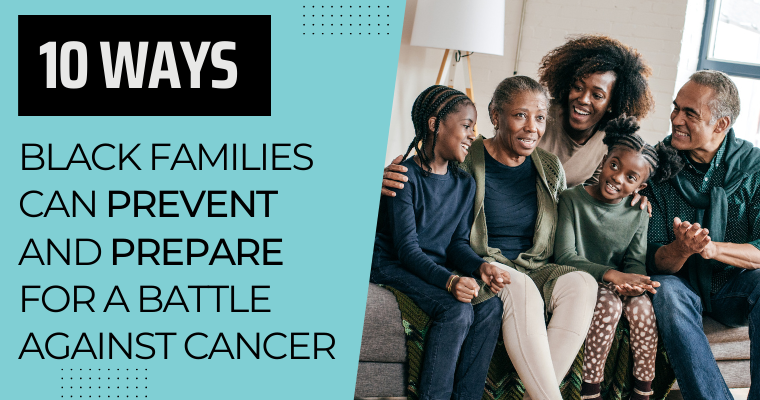
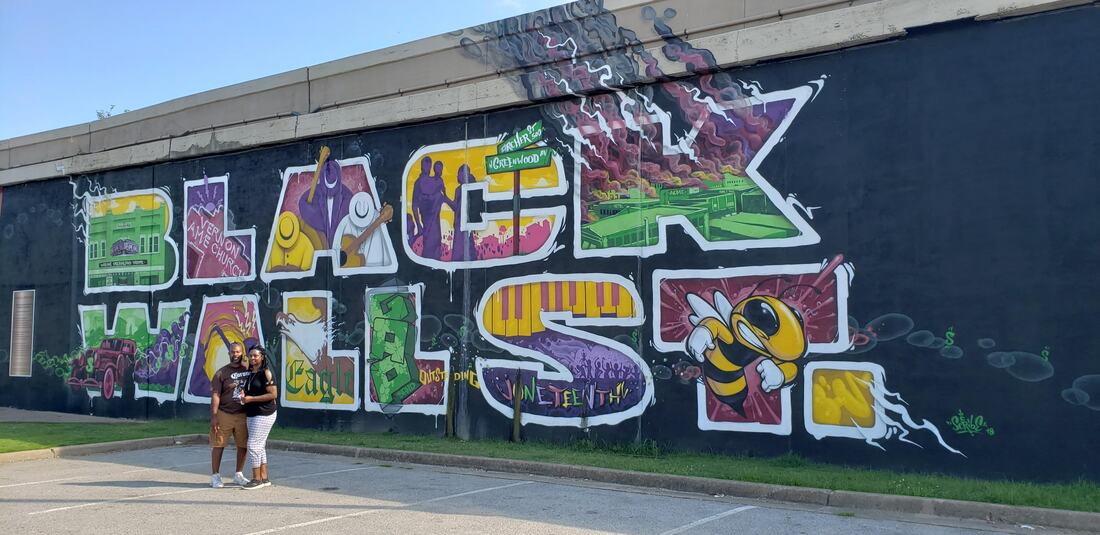

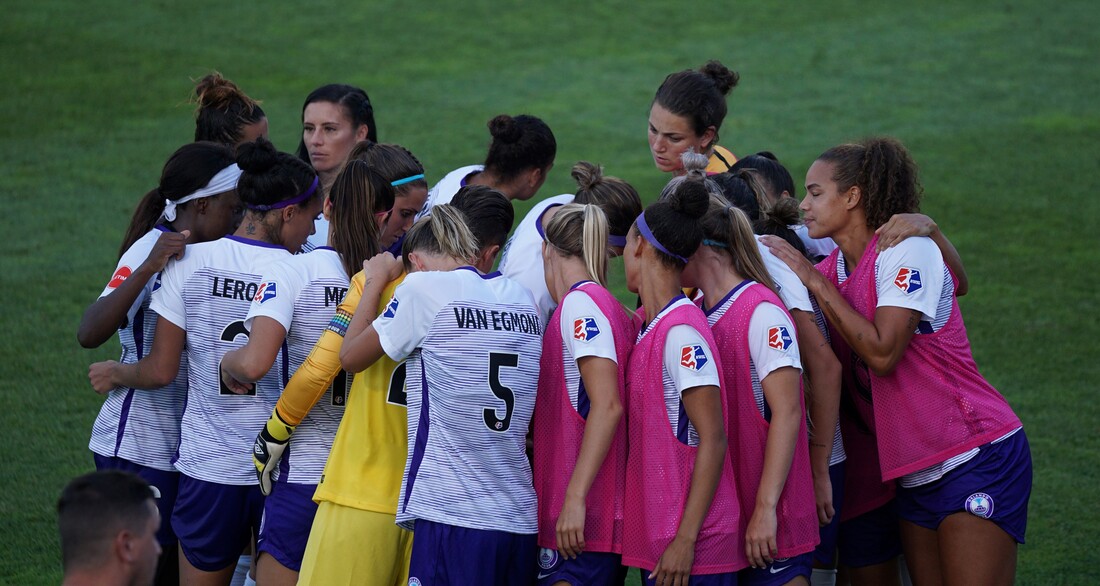
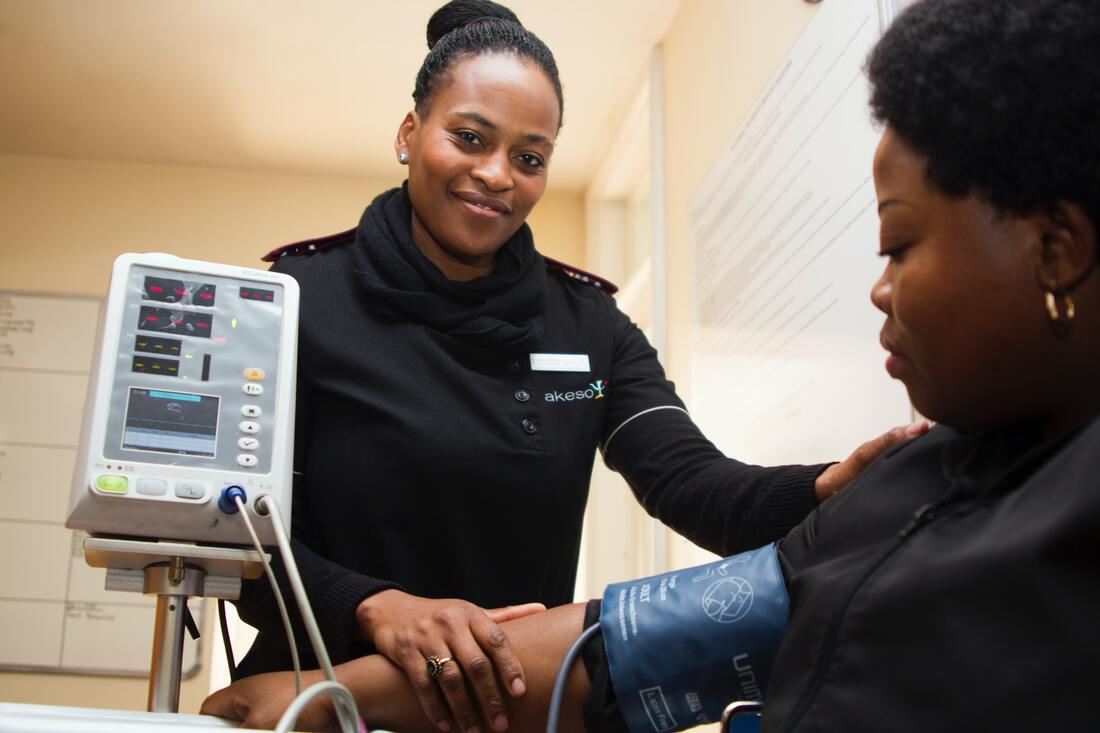
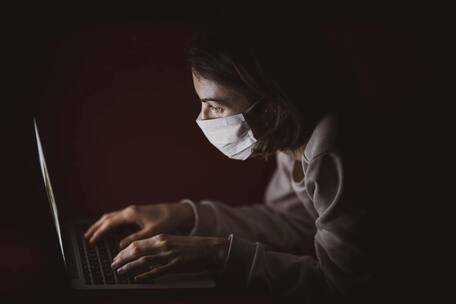
 RSS Feed
RSS Feed